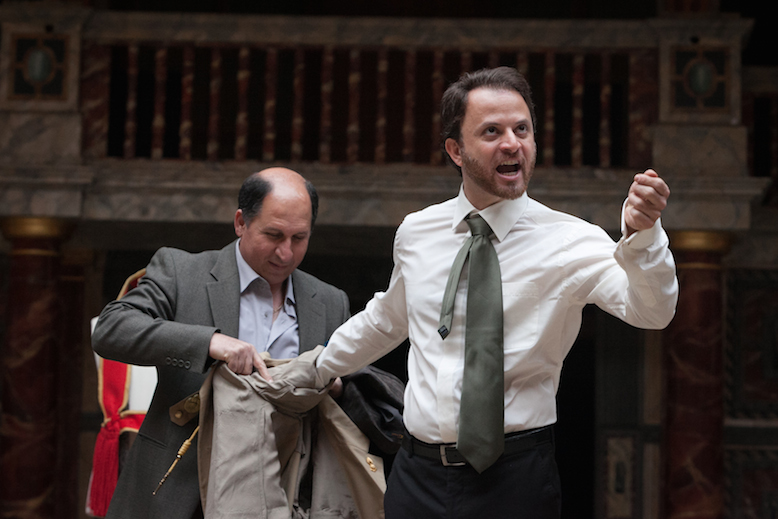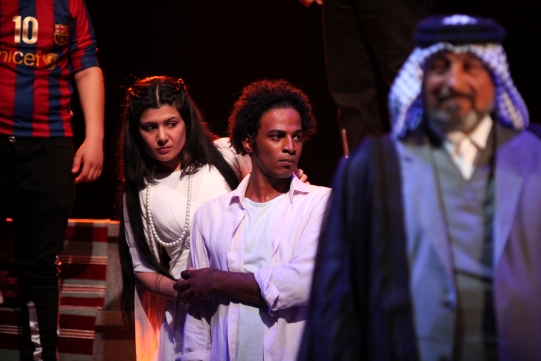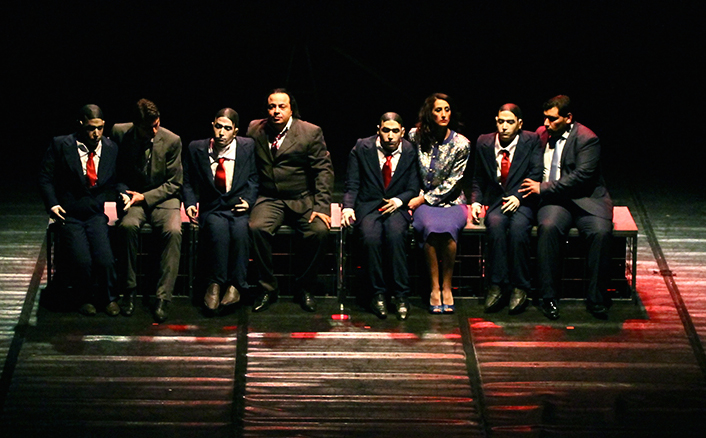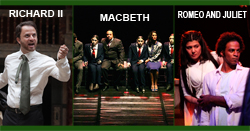How do Arab theatre makers navigate a “World Shakespeare” festival, maneuvering between interesting times in their home countries and the expectations of British and global funders and audiences? A recently published article by GS Arab world editor Margaret Litvin and two collaborators, Saffron Walkling (University of York) and Raphael Cormack (University of Edinburgh) explores some of the contingencies, ironies, and unexpected beauties of these collaborations.
Read or download it at https://www.academia.edu/15225893/Full_of_noises_when_World_Shakespeare_met_the_Arab_Spring_

Palestinian Ashtar Theatre’s Richard II © Marc Brenner

Iraqi Theatre Company’s Romeo and Juliet in Baghdad © Royal Shakespeare Company

Tunisian Artistes Producteurs Associés’ Macbeth: Leila and Ben – A Bloody History © Lotfi Achour





